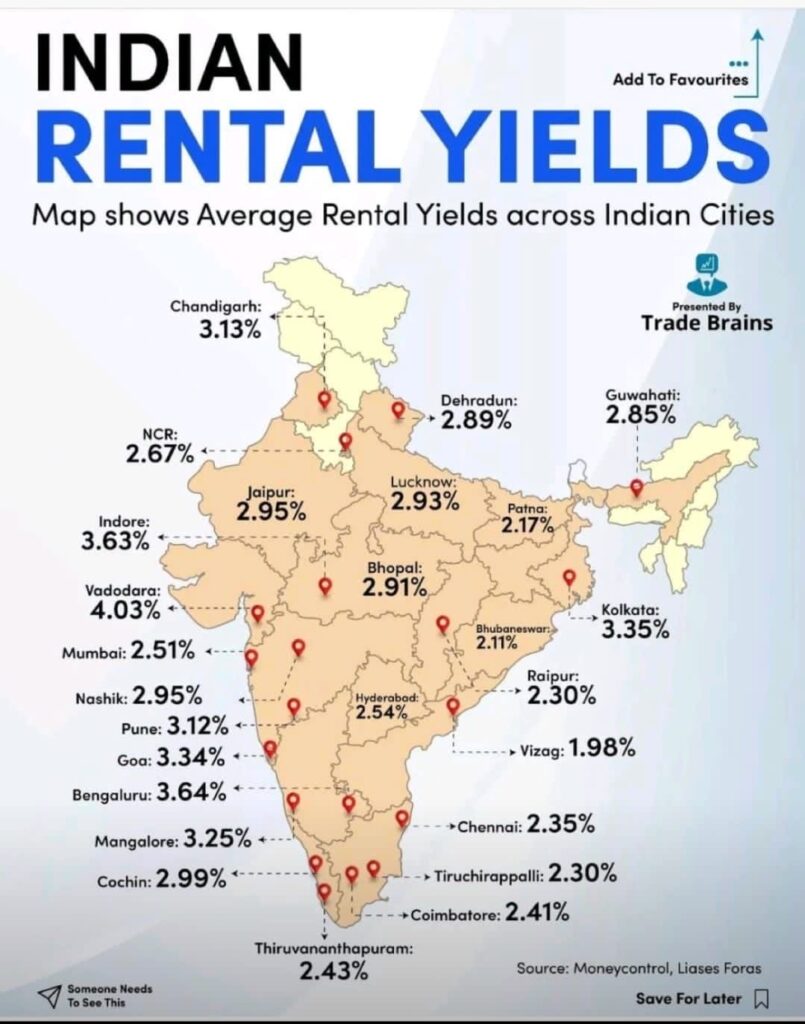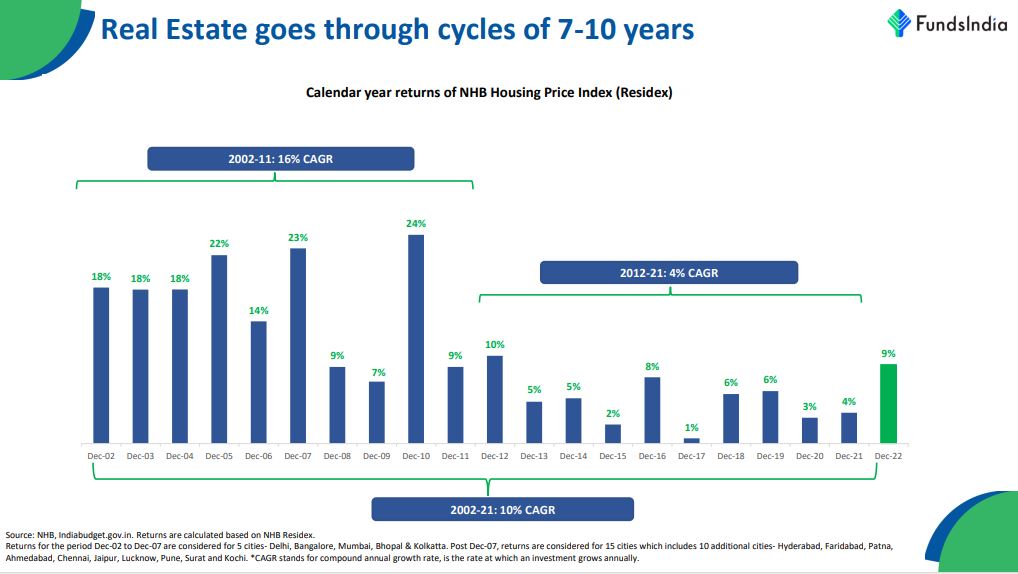Real estate investment has long been a favoured choice for Indians looking to grow their wealth. This is because real estate has traditionally been seen as a safe and secure investment. However, before you jump on the property bandwagon, it’s essential to take a closer look at the numbers. Does it make sense to invest in property, especially for those considering a second home for investment purposes?
The Challenge of Low Rental Yields
Rental yield, which is the annual rental income divided by the property’s market value, often serves as a primary indicator of the profitability of real estate investments. The average rental yield in India is around 2-3%. This means that for every ₹100,000 you invest in a property, you can expect to earn around ₹2,000-3,000 in rent each year.

So, for a property worth 1 crore, you can expect to earn a rent of around 3 lakhs a year. However, you will not get to keep all of this money. You will need to pay society maintenance, property tax, and income tax. This means that the actual rental yield will be much lower than 3%.
Home loan rates are also relatively high, currently around 9%. This means that you will have to pay a significant amount of interest on your home loan, which will wipe out any profits you make from renting out the property.
But what about capital appreciation?
Capital appreciation is the expected increase in the property’s value over time. The capital appreciation of property in India has been relatively low in recent years. This is due to a number of factors, including the glut of real estate properties, as there has been a lot of construction in recent years, but not enough demand to absorb all of the new supply, and the economic slowdown, which has led to a decline in demand for housing.
In the last 10 years, the average annual return on residential property in India has been around 4%. This is lower than the returns on other asset classes, such as equity, gold and even FDs.

Is Investing in Indian Real Estate Worth the Hassle?
Investing in real estate comes with its own unique set of challenges that often require more time and effort than other investment options like mutual funds, gold, or fixed deposits. We call this concept the “Return On Hassle.” Return on Hassle is a measure of the amount of time and effort required to manage an investment and the potential financial gains that can be achieved.
As a property owner, I’ve encountered a range of challenges, including:
Delayed Rent Payments: Following up with tenants for delayed rent was often a hassle.
Society Restrictions: Flats cannot be given on rent to bachelors and foreigners.
Leakage Issues: There was leakage from the apartment above. Initially, we believed it was the responsibility of the flat owner living above us, but it turned out to be an external leak. This meant that we had to follow up repeatedly with the society’s management to get it fixed.
What if the tenant refuses to vacate?
Tenants who refuse to vacate after their lease ends can be a nightmare for property owners. The legal process to evict them can be expensive, time-consuming, and mentally agonizing.

REITs: A Way to Invest in Real Estate Without the Hassles
Real estate investment trusts (REITs) are a way to invest in property without the burdens of physical ownership. REITs are companies that own and operate income-producing real estate. They are traded on stock exchanges, so they are more liquid than property. This means that you can buy and sell REITs more easily than you can buy and sell property.
So, is it a good idea to invest in property in India?
While property ownership can offer emotional comfort and peace of mind, it may not always be the most financially sound choice. Given the low rental yields, high home loan rates, and the challenges of being a property owner, alternatives like mutual funds, sovereign gold bonds, and REITs are becoming increasingly attractive investment options. It is important to consider your financial goals and risk tolerance before investing in real estate. This will help you choose the right investment for you.




Pingback: There Is No Such Thing as a Risk-Free Investment : The Prudent Investor